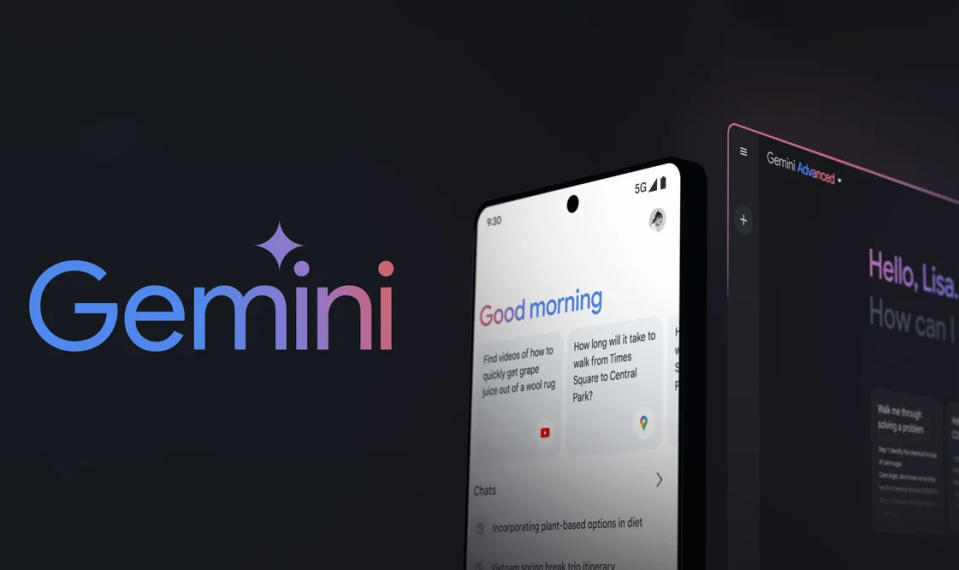It’s almost that time again, folks: we’re about to find out about some of Google’s big ideas for the year ahead at its I/O developer conference. Most of the big news will come from the opening keynote on May 14, which will almost certainly give us more info on Android 15 as well as a whole bunch of AI updates.
There will surely be some surprises, though we’ll more than likely need to wait until the fall to get the full lowdown on the company’s latest flagship hardware.
As always, the rumor mill has been churning away with a number of reports highlighting what Google is likely to discuss at I/O. To that end, here’s what to expect from the Google I/O 2024 keynote:
Android 15

I/O is a developer conference first and foremost. This is always where Google gives third-party devs the full lowdown on the next major Android version so they can start working on apps for it or modify their existing products.
The first Android 15 betas are already out in the wild. Among the features are an updated Privacy Sandbox, partial screen sharing (so you can record or share a certain app window instead of the entire screen) and system-level app archiving to free up space. There’s also improved satellite connectivity, additional in-app camera controls and a new power efficiency mode.
However, Google is saving the bulk of the Android 15 announcements for I/O. The company has confirmed satellite messaging is coming to Android, and we could find out more about how that works. Lock screen widgets may be a focus for tablets, while Google might place an onus on an At a Glance widget for phones. A status bar redesign may be in the offing, and it may at long last be easier for you to monitor battery health.
Wake words may once again be in the offing for third-party assistants such as Alexa and even ChatGPT. Rumors also suggest there may be a feature called Private Space to let you hide data and apps from prying eyes.
AI, and lots of it

If you drop a dollar into a jar every time someone mentions AI during the keynote, you’ll probably stash away enough cash for a vacation. The safe money’s on Google talking about Gemini AI, which may end up replacing Assistant entirely. If that’s the case, we could find out some of the details about the transition at I/O.
Back in December, it was reported that Google was working on an AI assistant called Pixie as an exclusive feature for Pixel devices. Pixie is said to be based on Gemini and may debut in the Pixel 9 later this year, so it would make sense for the company to start discussing that at I/O.
It wouldn’t be a surprise to learn about generative AI updates for key Google products such as Search, Chrome, Maps and G Suite. AI-driven accessibility features and health projects may be in the offing too. Meanwhile, with Google once again delaying its plan to kill off third-party cookies in Chrome, it may see AI as a solution to ad targeting and spill the beans on any plan for that at I/O.
Everything else

The full I/O schedule offers some insight into what else Google will discuss, even if those products and services won’t necessarily get airtime in the keynote.
Google has lined up a panel on the future of Wear OS, which will include details on “advances in the Watch Face Format,” so expect some news about its smartwatch operating system. There will also be updates on Google TV and Android TV.
Meanwhile, Google’s quantum computing team will talk about what’s feasible in the space and attempt to separate fact from fiction. An Android Auto panel is on the schedule too, hinting at developments for multi-display and casting experiences.
What not to expect: Pixel 9 or Pixel Fold

It would be a major surprise for Google to reveal a Pixel 9 or a new Pixel Fold this early in the year. The company is probably going to save those details for the fall ahead of those devices going on sale around that time. However, it did formally reveal the Pixel Fold at I/O last year, so we could get a glimpse of some hardware — especially if it wants to get out ahead of the leakers and control the narrative.
On the other hand, Google recently consolidated its Android and hardware teams under Rick Osterloh. His team may want a little more prep to make sure new devices are ready for primetime under the latest regime. As such, any hardware news (including anything to do with Nest or wearables) could be a little farther out.
Source: www.engadget.com
